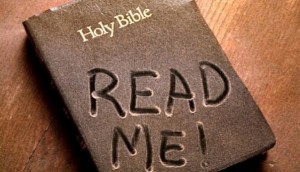The Bible In A Year 
Torah – week 7 of 8
Readings for the Week
August 20-25, 2018
Theme of the week: Waging War, reviewing laws
- Monday Numbers chapters 31 & 32
- Tuesday Deuteronomy chapters 1, 2 & 3
- Wednesday Deuteronomy chapters 4, 5 & 6
- Thursday Deuteronomy chapters 11, 12, 13, 14, &15
- Friday Deuteronomy chapters 19, 20, 21, 22, & 23
- Saturday Numbers chapters 28, 29, 30 Leviticus chapter 27
The Bible In A Year – Torah – week 7 of 8
A Framework for Understanding
The Shema
In the 6th chapter of Deuteronomy we encounter the most important commandment of the Hebrew scriptures: “The Shema”. It is referred to as “the shema” in the same way that some people call the “Lord’s prayer” the “Our Father.” “Shema” is the first word of the passage, the imperative of the verb, meaning “Hear!” Many Christians today know this passage as “The Great Commandment.”
In the Jewish tradition, the Shema became a prayer which was learned, recited, taught to children, etc. Through the centuries the prayer was altered and augmented; at one point it time it contained the entire list of the 10 commandments. Although this scripture passage is not mentioned specifically in the remainder of the Hebrew scriptures, it was definitely a significant part of the religious practice.
There are various ways the Hebrew words can be translated into English, and variations on the theological meaning with each different translation.
• “Hear, O Israel, the LORD, your God, is one.” This translation makes an important statement against the polytheistic practices of neighboring religious traditions.
• “Hear, O Israel, the LORD alone is our God.” This translation makes a statement against embracing other religious faiths or practices.
• “Hear, O Israel, the LORD our God is one.” This translation makes a statement about the nature of covenant – that the person of God is one, and one with us.
It is a sincere desire, for many devote Jews, that with their dieing breath they will speak the words of the shema.
